- Home
- James Phelan
The Hunted
The Hunted Read online
Praise for James Phelan and his work
“James Phelan has produced a big, juicy, rollicking tale in the spirit of Robert Ludlum. We haven’t seen an international thriller like this for a long time.” —Jeffery Deaver on Patriot Act
“James Phelan is one of the hottest thriller writers to arrive on the scene in years.” —Vince Flynn
“James Phelan has earned a new avid fan.” —Steve Berry
“Vivid and suspenseful . . . an espionage novel with grunt.” —Sydney Morning Herald on The Spy
“Walker’s so tough he’s got muscles in his spit.” —West Australian
“A finely honed story which proves the thriller genre is alive . . . Can’t wait for the next one.” —Sunday Times on Fox Hunt
“Phelan gets the balance absolutely right . . . An absolute must-read for fans of Clancy, Ludlum et al.” —Bookseller & Publisher on Patriot Act
“Like all good thrillers . . . Phelan keeps the reader guessing right up to the last page.” —The Age on Patriot Act
“Phelan’s techno-thriller is in the same league as Clive Cussler and Tom Clancy.” —Sun-Herald on Blood Oil
James Phelan is the bestselling and award-winning author of twenty-eight novels and one work of non-fiction. From his teens he wanted to be a novelist but first tried his hand at a real job, studying and working in architecture before turning to English literature, spending five years at a newspaper and obtaining an MA and PhD in literature. James has written five titles in the Lachlan Fox thriller series, and the Alone trilogy of young adult post-apocalyptic novels. The ex-CIA character of Jed Walker was first introduced in The Spy, which was followed by The Hunted, Kill Switch and Dark Heart. James has also written a fourteen-book adventure series for Scholastic, titled The Last Thirteen. He has been a full-time novelist since the age of twenty-five, and spends his time writing thrilling stories and traveling the world to talk about them.
To find out more about James and his books, visit:
www.jamesphelan.com
Follow and interact with James:
www.facebook.com/realjamesphelan
www.twitter.com/realjamesphelan
www.instagram.com/realjamesphelan
www.whosay.com/jamesphelan
BY JAMES PHELAN
The Jed Walker books
The Spy
The Hunted
Kill Switch
Dark Heart
The Lachlan Fox books
Fox Hunt
Patriot Act
Blood Oil
Liquid Gold
Red Ice
The Alone series
Chasers
Survivor
Quarantine
New York • London
© 2017 by James Phelan
Cover design by Luke Causby
Cover photographs courtesy Arcangel Images
First published in the United States by Quercus in 2017
All rights reserved. No part of this book may be reproduced in any form or by any electronic or mechanical means, including information storage and retrieval systems, without permission in writing from the publisher, except by reviewers, who may quote brief passages in a review. Scanning, uploading, and electronic distribution of this book or the facilitation of the same without the permission of the publisher is prohibited.
Please purchase only authorized electronic editions, and do not participate in or encourage electronic piracy of copyrighted materials. Your support of the author’s rights is appreciated.
Any member of educational institutions wishing to photocopy part or all of the work for classroom use or anthology should send inquiries to [email protected].
e-ISBN 978-1-63506-021-8
Distributed in the United States and Canada by
Hachette Book Group
1290 Avenue of the Americas
New York, NY 10104
This book is a work of fiction. Names, characters, institutions, places, and events are either the product of the author’s imagination or are used fictitiously. Any resemblance to actual persons—living or dead—events, or locales is entirely coincidental.
www.quercus.com
In memory of Matt Richell, a publishing champion and wonderful man.
Contents
Prologue
Chapter 1
Chapter 2
Chapter 3
Chapter 4
Chapter 5
Chapter 6
Chapter 7
Chapter 8
Chapter 9
Chapter 10
Chapter 11
Chapter 12
Chapter 13
Chapter 14
Chapter 15
Chapter 16
Chapter 17
Chapter 18
Chapter 19
Chapter 20
Chapter 21
Chapter 22
Chapter 23
Chapter 24
Chapter 25
Chapter 26
Chapter 27
Chapter 28
Chapter 29
Chapter 30
Chapter 31
Chapter 32
Chapter 33
Chapter 34
Chapter 35
Chapter 36
Chapter 37
Chapter 38
Chapter 39
Chapter 40
Chapter 41
Chapter 42
Chapter 43
Chapter 44
Chapter 45
Chapter 46
Chapter 47
Chapter 48
Chapter 49
Chapter 50
Chapter 51
Chapter 52
Chapter 53
Chapter 54
Chapter 55
Chapter 56
Chapter 57
Chapter 58
Chapter 59
Chapter 60
Chapter 61
Chapter 62
Chapter 63
Chapter 64
Chapter 65
Chapter 66
Chapter 67
Chapter 68
Chapter 69
Chapter 70
Chapter 71
Chapter 72
Chapter 73
Chapter 74
Chapter 75
Chapter 76
Chapter 77
Chapter 78
Chapter 79
Chapter 80
Chapter 81
Chapter 82
Chapter 83
Chapter 84
Chapter 85
Chapter 86
Chapter 87
Chapter 88
Chapter 89
Chapter 90
Chapter 91
Chapter 92
Chapter 93
Chapter 94
Chapter 95
Chapter 96
Chapter 97
Chapter 98
Chapter 99
Chapter 100
Chapter 101
Chapter 102
Chapter 103
Chapter 104
Chapter 105
Chapter 106
Chapter 107
Chapter 108
Chapter 109
Chapter 110
Chapter 111
Chapter 112
Chapter 113
Epilogue
Acknowledgments
Prologue
The gunshot sounded. Then another.
Walker looked up. Alert, not alarmed.
Nine-millimeter. Double-tap. Fired from an elevated position. A couple of blocks east, atop one of the multi-story buildings. Fired downward and at close range to the target, minimizing the report.
No one in the New York street seemed to notice. Just another sharp sound in a big city: a car backfi
ring or machinery clanging or something big and heavy hitting the deck.
But Walker knew. And the man seated in front of him knew. And the guy standing two yards away beside Walker’s ex-wife knew.
“Somerville,” Bill McCorkell said from across the table. He shifted in his seat and added, “Right on time, I’d say.”
Walker looked up at the rooftop and saw Somerville, five stories up, a foot on the parapet, holstering her FBI-issued side-arm. He waved. She waved back.
Walker said, “She wasn’t shooting at birds, I take it.”
“Tying up a loose end,” McCorkell replied.
“Durant?”
McCorkell nodded.
Walker looked back up to the elevated position. She’d tracked Durant up there; it was a no-brainer what he’d been up to. Walker pictured the ex-CIA man’s body sprawled next to a sniper’s rifle. Walker wondered who would have been lined up in the scope first—him or McCorkell. On the street, a team of heavily armed NYPD uniformed officers appeared on foot from around a corner and entered the building. She’d planned it well. A good job all round.
“Thank Somerville for me,” Walker said, his eyes returning to McCorkell.
“You can thank her yourself,” the older man countered. He leaned forward on the table. “This is the beginning of things, Walker, not the end.”
Walker paused for just a moment. “This changes nothing.”
McCorkell sat there, silent, waiting.
“I’m not working for you,” Walker said. “Just tell Somerville she and I are even.”
“You two will never be even.”
Walker didn’t answer; instead he turned and walked the four paces to where the FBI man Andrew Hutchinson stood with Walker’s former wife, Eve.
Separated. Then widowed. Grieving for more than a year, never knowing what really happened to her estranged husband who’d been listed dead by the CIA and State Department.
Now this.
The two of them, standing there, facing each other on the Manhattan street.
She was smaller than he remembered. A little older. Sadder. Beautiful.
Hutchinson stepped around Walker to join McCorkell at the cafe table. Walker could hear them talking, animatedly, but he blocked it out.
Eve.
Looking into Eve’s eyes, he felt that it could have been yesterday he’d last seen her. A bunch of yesterdays ran through his mind. Most of them were firsts. Their first meeting, first kiss, first time they’d slept together, first time they’d fought. The last time they’d fought.
Standing before her, Walker was ready for war. For tears and fists. Anger. But if all that was there, it was coming later.
For now, Eve hugged him. Tight. Silent.
He’d always loved that about her: no matter what happened, she knew what to say, and what not to say. They stood together, embracing, until McCorkell tapped Walker on the shoulder.
“We’ve just had word,” McCorkell said, moving into Walker’s line of sight over the top of Eve’s head. “We know where he is.”
From the tone, the poise, Walker knew what McCorkell meant before he elaborated.
“We’ve found your father.”
•
“He’s in the UK,” Special Agent Hutchinson said to his boss, Bill McCorkell. “That’s David Walker, right there.”
Walker looked over the photographs.
The four of them—Walker, McCorkell, Hutchinson and Special Agent Fiona Somerville—sat in an office of the FBI’s New York Field Office. Eve sat at a desk outside the glass-walled office, waiting. The Lower Manhattan office building was a shared federal government space, and staffers milled about, looking busy.
Fair enough, thought Walker. They’d almost lost a VP on their turf just a few days back. The same day that Walker had heard from his father.
“Near Hereford,” Hutchinson said, showing a map on his iPad. “West Midlands, near the Welsh border.”
“I know the place,” Walker said. He looked at the long-lens shot of the man who had raised him. The man he hardly knew. “I spoke at the SAS once. My father did too, several times.”
“So he had friends there,” Somerville said.
“Probably. None I recall, no names,” Walker said. He stared blankly, remembering the place. “Hell, as a teenager I went with him on one of his trips and we fished the Wye together. How’d we get these photos?”
“British intel, about two weeks back,” Hutchinson said. The FBI man used a pencil to itch at his bandaged arm. “They’re investigating someone he was seen with.”
“Why?”
“We’re not sure yet,” Hutchinson replied, as he brought up a satellite map on a large screen. “The call that your father made to you at the New York Stock Exchange? It came from a location not far from the barracks.” He zoomed in on a dot on a tiny road at the center of a cluster of small buildings. “It came from a landline phone in this tavern.”
“That call was made three days ago,” Walker said. “He won’t still be in the area. The trail’s long dead. He’ll be gone. He’s good at disappearing.”
“I’ve just run his image through TrapWire and Scotland Yard’s CCTV program,” Somerville said. “He’s come up four times over the past six months, all within fifty klicks of that tavern.”
Walker studied the images that Hutchinson had brought up on the screen. A couple were grainy and blurred, taken from ATM cameras. Another showed his father in the background of someone’s Facebook photo. The last was a grab from a CCTV camera in a shop—in this last one the subject was looking directly up at it, as though he knew he’d been caught out.
“That last one,” Walker said. “Where’s that?”
“A gas station, just on the outskirts of Hereford on that same road headed to our tavern, soon after he called you,” Somerville said, checking the surveillance notes. “Later that night it was robbed. All on-site stored footage was taken but this had been backed up off-site to the security company.”
“Does all that sound like the actions of a guy leaving the area?” McCorkell said to Walker. “He’s still there.”
“Covering his tracks . . .” Walker said, seeing his father’s eyes for the first time in a long while. He looked over to Eve, silent, present, but not taking it in, as though the reappearance of yet another dead Walker was one revelation too many. “You think he’s been there for the last six months?”
“At least,” Hutchinson said.
“Seems he’s made it something of a home base,” Somerville said. “He could be running Zodiac from there.”
“We don’t know his involvement in that,” McCorkell said.
“Yeah, well he did have contacts there,” Walker said. “He had a hand in the psych training and debriefing of SAS guys, since at least the Falklands.”
“No one you remember?” Hutchinson asked, cradling his bandaged arm. “Anyone there particularly close to your father?”
“Nope,” Walker said, thinking back. “But he had a few friends there, I’m sure. He’d go there every few years. They’d be drinking buddies and the like. Not close.”
“Close enough to work with,” Somerville said. “Then, and now.”
Walker nodded.
“You got dates for those trips?” Somerville asked. “I can get British Ministry of Defence personnel records to match, go through them.”
“Maybe,” Walker said, nodding. “But this is the SAS we’re talking about—whether serving or former, they’re not going to lay out the red carpet for a group of outsiders to look into their people’s whereabouts.”
“Worth a shot,” McCorkell said. “Let’s see where we can get.”
Somerville nodded.
“Why haven’t we heard about this sooner?” Walker said. “Why didn’t his presence, plus the fact that MI5 are looking into him too, flag something months ago?”
“We’re still waiting on answers to that too,” Hutchinson said. “Brits are dragging their feet in cooperating—we don’t know who they’re survei
lling, or why.”
“But we’re working on it,” McCorkell said, looking to Walker as he spoke.
“I just can’t imagine him being in a place like that,” Walker said, “a place people might recognize him, when he’s playing the dead man.”
“He’s hiding in plain sight,” Somerville said. “It worked for you for near-on a year.”
“Yeah, but I was trying to stop a terrorist attack,” Walker said, “not playing a part in it.”
“You really think he’s a part of this, don’t you?” McCorkell said, matter-of-fact.
Walker remained silent.
“At any rate,” Somerville said, filling the silence, “no one’s been looking for David Walker until now.”
“News travels fast, even over the pond,” Walker said. “They’d have known he was supposed to be dead.”
“So, he’s staying off the grid over there,” Hutchinson said. “Maybe only a local friend or two know of his resurrection.”
Walker shook his head. “It’s not like him. He’s too smart, and being over there seems too risky.”
“He’s there because of something he needs,” Hutchinson said. “Protection. Connections. Something.”
“Maybe he’s retired there,” McCorkell said, leaning back and sipping a steaming tea. “For the fishing.”
“Right,” Walker said, deadpan. “You think he faked his death, had a hand in a terrorist attack on US soil, knew of an internal CIA takeover and an attempt on the Vice-President’s life—all from a tavern in rural England?”
McCorkell shrugged.
“You’re a pro at this, right?” Walker chided.
McCorkell feigned indifference. Walker looked from him to Hutchinson, then to Somerville. The three of them watched him. Waiting. For an answer. An answer they’d been waiting to hear for three days.
“Look, Walker, this, with your father. It’s a lead,” Somerville said. “The best lead we’ve got to break into the Zodiac terror network. And we’re going to check it out. With or without you.”
“So tell us,” Hutchinson said. “Are you in?”
Walker looked from the UN intelligence team to the larger office beyond the glass wall. Eve sat there. She was looking at him. Her eyes showed nothing.
Walker nodded. “I’m in.”
1
“Nine years ago,” Walker said, looking through the car’s windscreen at the English town. “That’s when I spoke here, after my first tour of Afghanistan.”

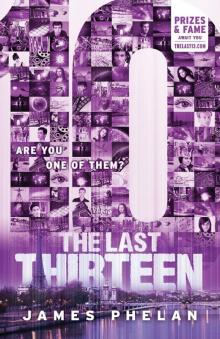 10
10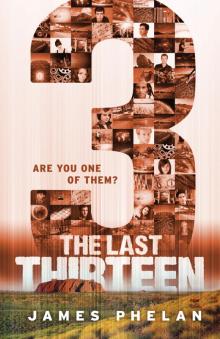 3
3 Survivor
Survivor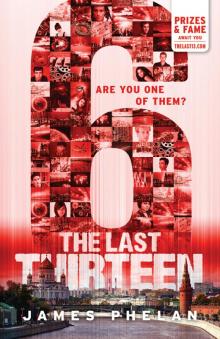 6
6 The Hunted
The Hunted Quarantine
Quarantine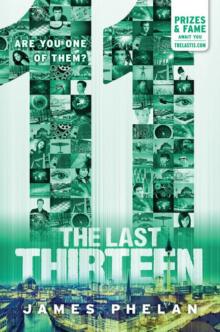 11
11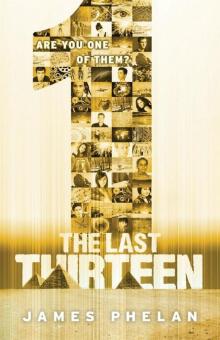 The Last Thirteen - 1
The Last Thirteen - 1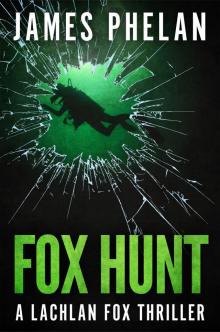 Fox Hunt
Fox Hunt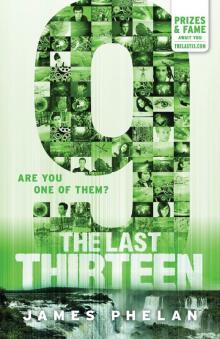 9
9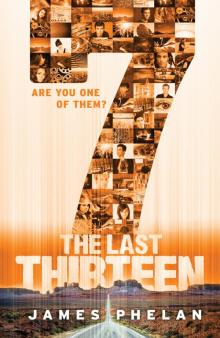 7
7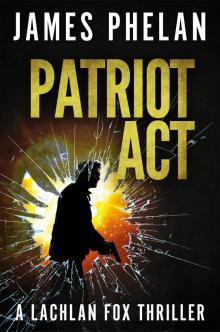 Patriot Act
Patriot Act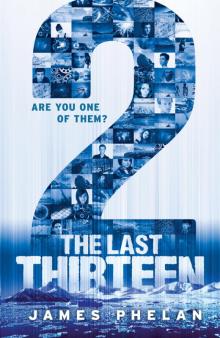 2
2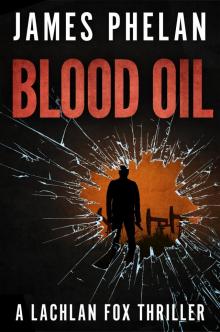 Blood Oil
Blood Oil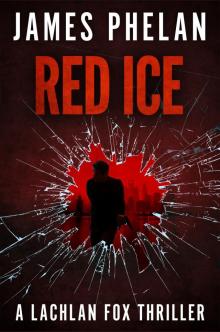 Red Ice
Red Ice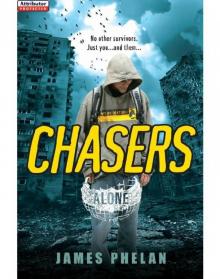 Chasers
Chasers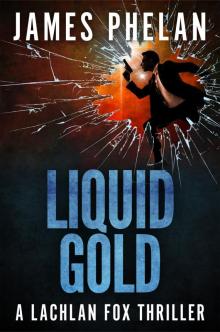 Liquid Gold
Liquid Gold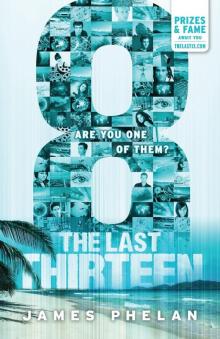 8
8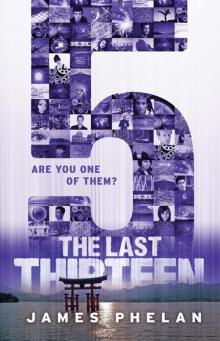 5
5 The Spy
The Spy Kill Switch
Kill Switch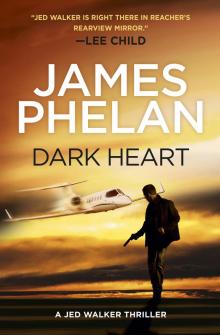 Dark Heart
Dark Heart